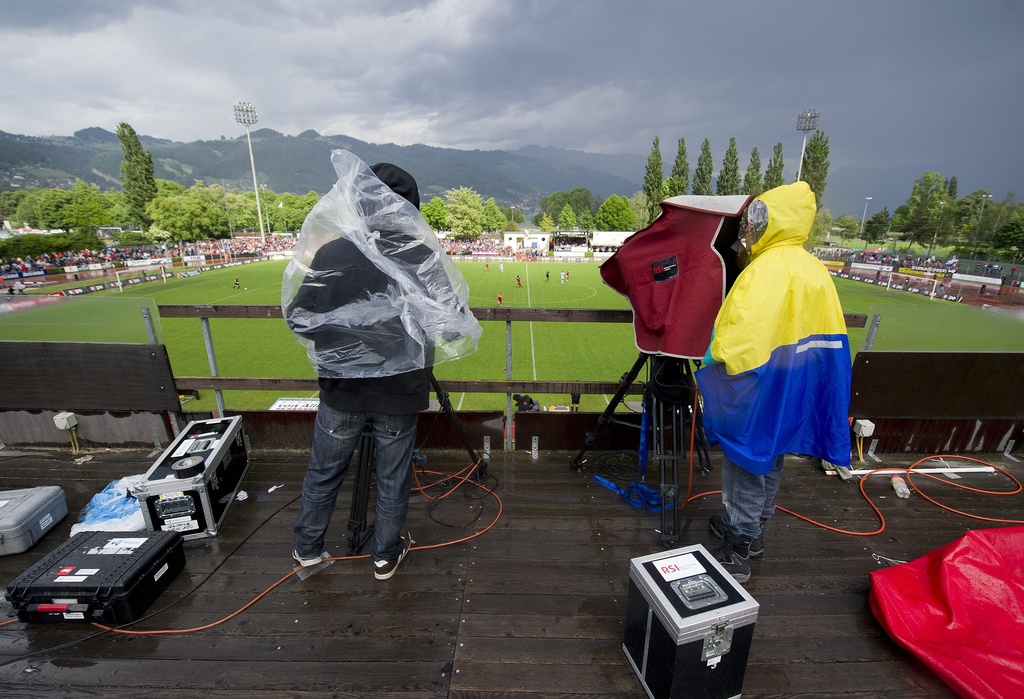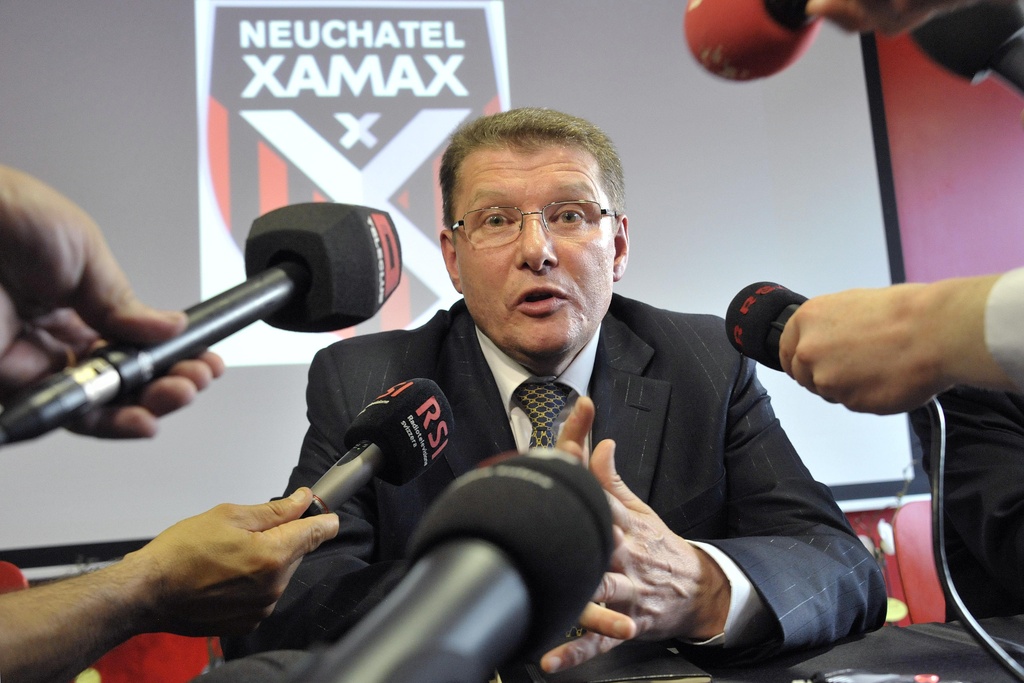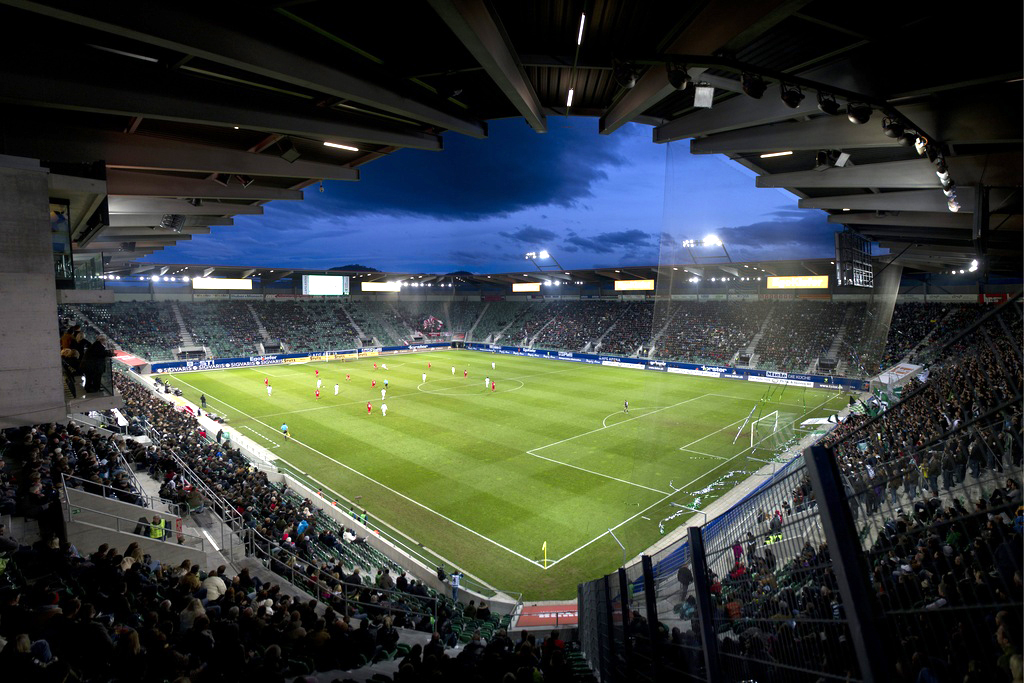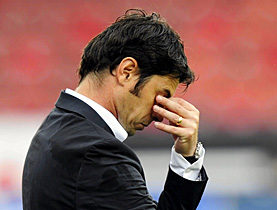Football season begins with enhanced TV deal

Defending champions FC Basel kicked off the Swiss football season at the weekend after a new television deal was brokered to plough more money into the game.
The Swiss Football League (SFL) will now receive SFr28 million ($34 million) per season over the next five years – a hike of SFr13 million from the previous television and marketing rights contract.
While not in the same division as the English Premier League, that sold 2010-2013 domestic broadcasting rights for £1.78 billion (SFr2.33 billion) and international rights for around £1.4 billion, the five year (2012-2017) Swiss deal is a step in the right direction, according to observers.
“This is a very good sign and shows that Switzerland is slowly catching up with other leagues,” Hans-Willy Brockes, head of St Gallen based sports marketing firm ESB, told swissinfo.ch.
“It’s still not very much money, but the football marketing rights were given away virtually for free in the past. It was really necessary to have competition for the rights.”
Rug pulled away
State-run institution and swissinfo.ch parent company, the Swiss Broadcasting Corporation (SBC), is the biggest loser in the new deal. Cable television company Teleclub had been eating into SBC’s monopoly in recent years with a pay-per-view package.
Teleclub’s parent body, CT Cinetrade (49 per cent owned by state telecommunications company Swisscom), appear to have finally trumped their free to air rival by joining forces with Raiffeisen bank as their main sponsor.
Cinetrade have snatched football’s marketing rights away from SBC and secured the rights to televise live all 180 top flight football matches. This will cost the consortium SFr170 million ($209 million) over five years, of which SFr140 million will go the SFL and SFr30 million will be borne in production costs.
SBC believe the rug was pulled away from under their feet, having felt certain that they could offer the best viewing experience for fans with a competitive offer of SFr26 million per season from their own consortium.
The state broadcaster must now decide whether to accept an offer to screen one live match per round from next year (total 36 matches each season) and show highlights of all games at a cost of SFr5 million per season – payable to Cinetrade.
At present, SBC pay the same amount to SFL for ten live games and the league’s marketing rights.
Cash needed
Many cash-strapped football clubs would welcome extra television revenues, but it is not yet known how the money will be distributed.
In an effort to attract more fans to matches, new stadia have sprung up in recent years in St Gallen, Bern, Basel, Lucerne and Thun. The cost of upgraded infrastructure has added to the financial burden of some clubs and nearly brought about the downfall of St Gallen last year.
The two Zurich top flight clubs, Grasshopper and FC Zurich, learned last week that a proposed new stadium would cost more than previously thought, raising their rent to more than SFr1 million per season if it is built.
The long-running saga has left the clubs and fans exasperated as they continue to share a multi-purpose athletics stadium while city politicians go around in circles debating the football ground.
Fans attending Super League games broke the two million mark for the first time last season, although FC Basel alone attracted around a quarter of these spectators. This compares to 1.44 million people attending matches in the 2005-6 season.
Season underway
However, Hans-Willy Brockes believes much more should be done to attract greater numbers of people to games. “The problem is that marketers do not view football as a premium product, unlike ice hockey or the Weltklasse athletics events,” he told swissinfo.ch.
“Sponsors could sell more season tickets with better promotional activities. As soon as people know that it is difficult to get tickets on the day they will pay more to book in advance. Then income from sponsorship and television rights would also rise.”
FC Luzern took an early table topping position after the first weekend of the 2011-12 season by beating Xamax Neuchâtel 3-0. The result would not have pleased Xamax’s new owner, Chechen oligarch Bulat Chagaev, whose motives for buying the club in May have been constantly questioned by the Swiss media.
In the other matches, defending champions FC Basel were held to a 1-1 draw by their previous manager Christian Gross who now coaches Young Boys of Bern.
FC Thun beat newly promoted Servette 2-1 while last year’s cup winners Sion beat FC Zurich 1-0. FC Grasshopper Zurich and Lausanne play on Wednesday.
Zurich’s two football clubs, FC Grasshopper Zurich and FC Zurich (FCZ), face yet more delays in their quest for a football stadium that they can call home.
The ageing Hardturm stadium, home to Grasshoppers, was pulled down in 2008 while FCZ’s Letzigrund stadium was rebuilt to host Euro 2008 matches and as a home for Weltklasse athletics events.
Plans to rebuild the Hardturm as a tailor made football home venue for both clubs have been mired in the political process for years.
As the debate continues, so does the cost of rebuilding the stadium, from SFr128 million, to SFr135 million and now SFr150 million ($184 million).
The new design would raise capacity from previous projections by 3,000 to 19,000.
An extra SFr6 million would be spent on giving fans separate seating areas and to keep rival supporters apart. Each club would be expected to pay SFr1 million per year in rent.
However, there is still no clear timetable for when the stadium would be completed.
The cash-strapped city authorities still have to work out how to balance the books in the face of a budget deficit.
Average attendance in recent years:
2010-11: 11,240
2009-10: 10,937
2008-9: 8,917
2007-8: 10,796
2006-7: 9,721
2005-6: 7,905

In compliance with the JTI standards
More: SWI swissinfo.ch certified by the Journalism Trust Initiative














You can find an overview of ongoing debates with our journalists here . Please join us!
If you want to start a conversation about a topic raised in this article or want to report factual errors, email us at english@swissinfo.ch.